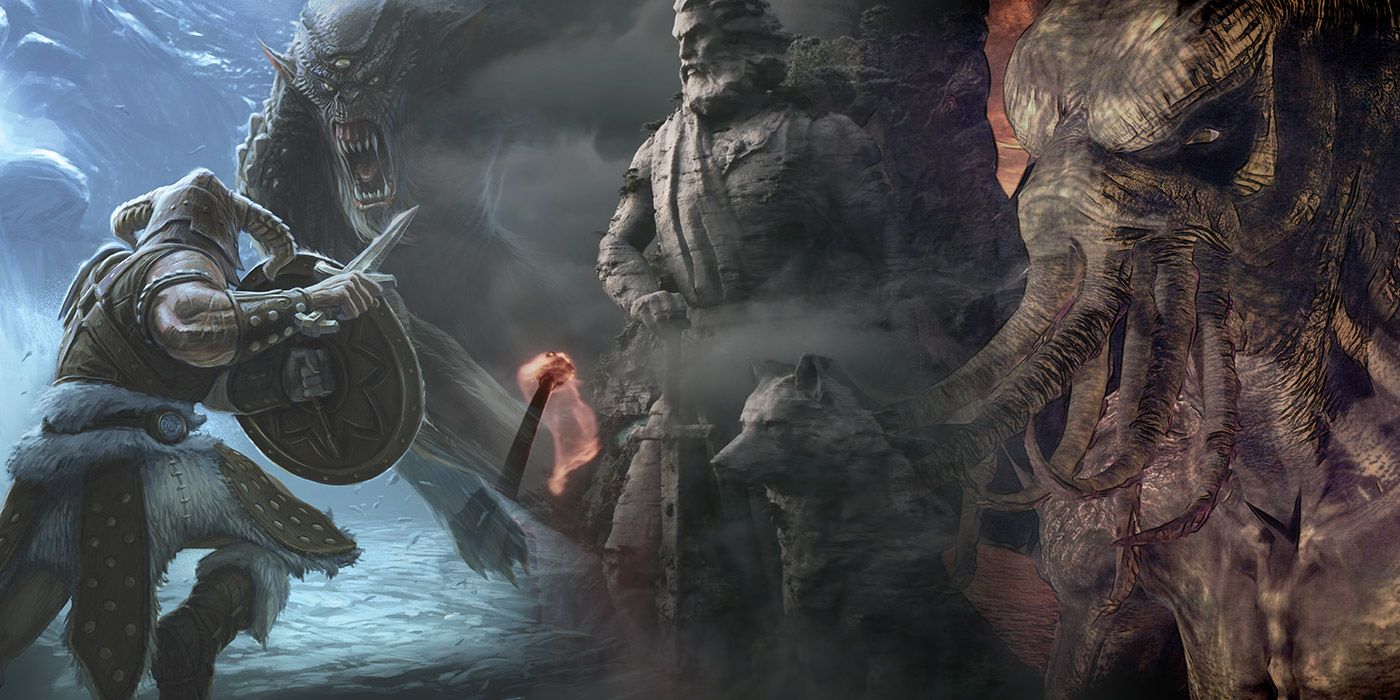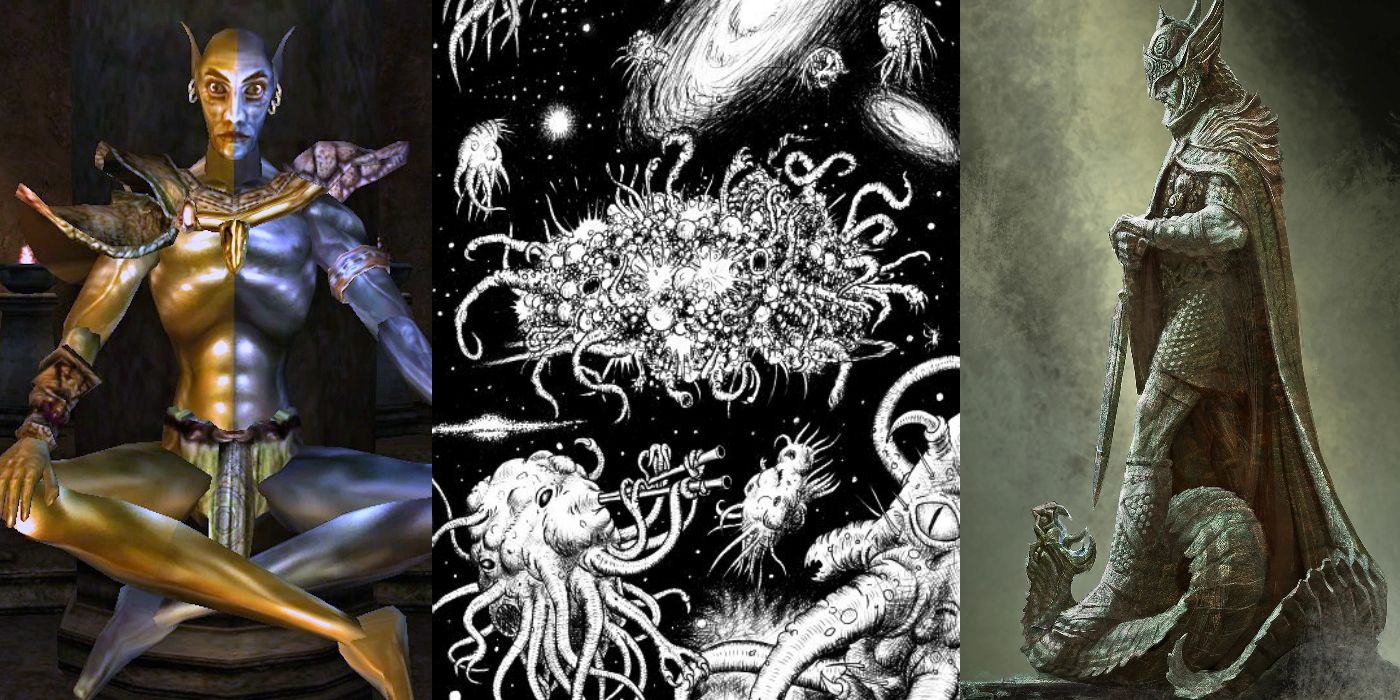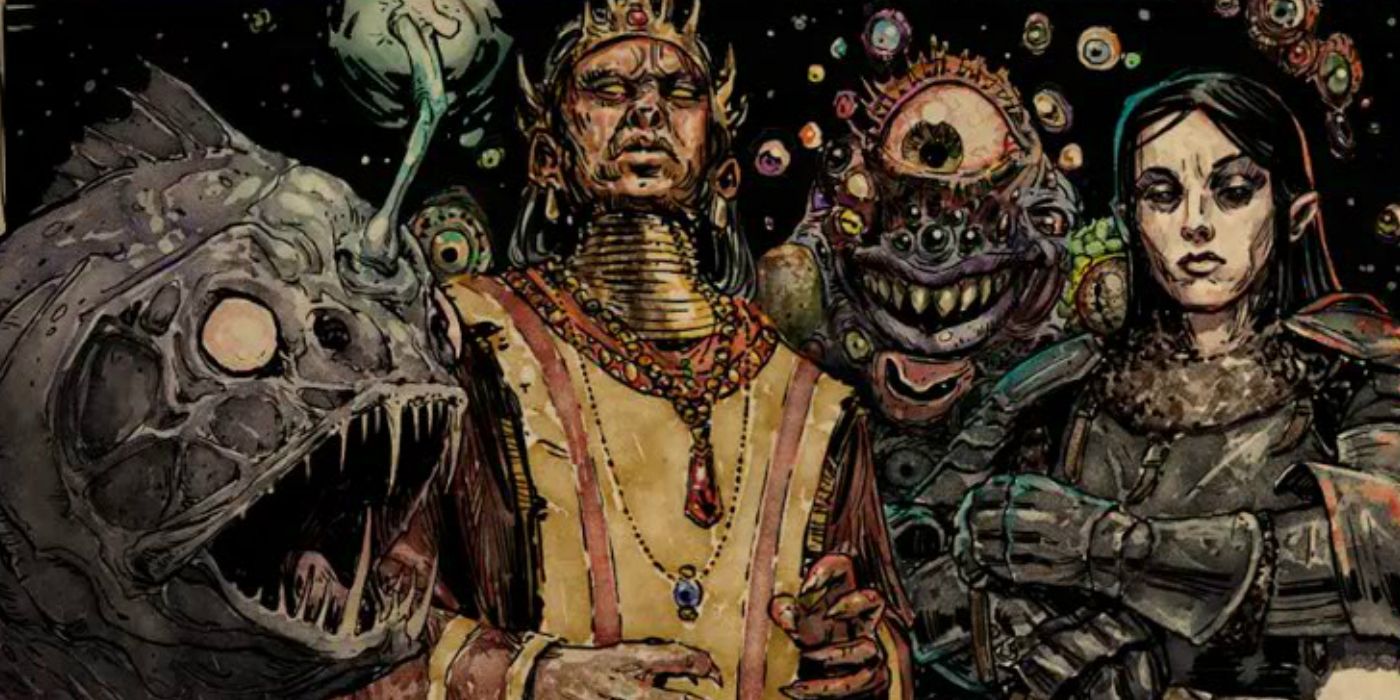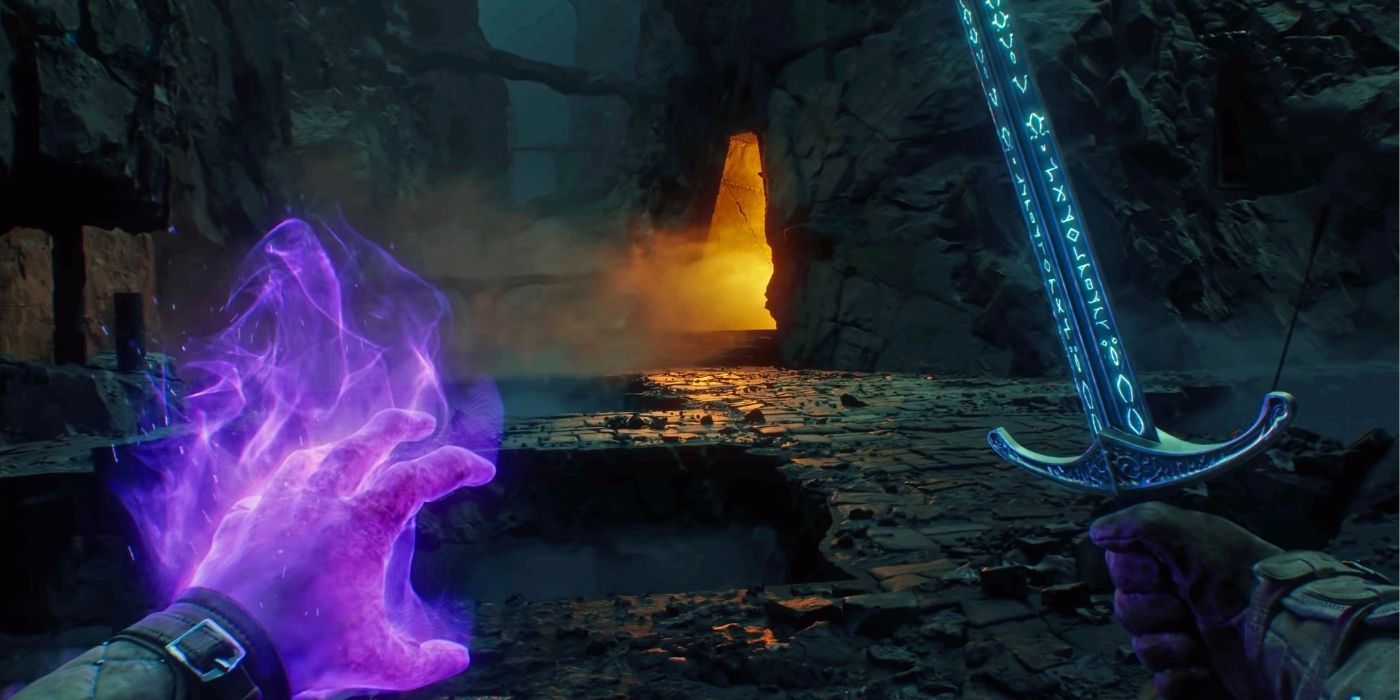Avowed Could Be Even More Lovecraftian Than Skyrim | Game Rant

Skyrim is packed full of references to the works of H.P. Lovecraft. Its last DLC, Dragonborn, saw the inhabitants of the isolated town of Raven Rock fall under a mysterious trance-like state that was leading them to build strange obelisks, with only the faintest memory of doing so. While some The Elder Scrolls quests are full of surface-level Lovecraft allusions like this, the series' metaphysical lore makes the connection explicit. The same can be said for Obsidian's upcoming first-person fantasy RPG, Avowed.
The cosmology of Avowed is just as bizarre as The Elder Scrolls, and clearly takes some influence from Lovecraft's work. However, the metaphysical side of Avowed's lore — first created by Obsidian over the two Pillars of Eternity games — has a far more explicit role to play to in the franchise's plotlines. Here's how Skyrim and Avowed connect to Lovecraft, and why fans can expect Avowed's Lovecraftian influences to have a bigger influence on the game's tone and story.

There's been much speculation that Obsidian hopes to use Avowed to target The Elder Scrolls' top spot in the first-person fantasy RPG market. The studio made a similar move with The Outer Worlds, a satirical sci-fi RPG directed by the original creators of the Fallout franchise. Like Skyrim, Avowed is set in a world with a cosmology deeply influenced by Lovecraftian mythos.
Skyrim has a few explicit Lovecraft references. The Daedric prince Hermaeus Mora appears in the Dragonborn DLC as a shifting mass of eye-like orbs, inky darkness, and tentacles. Lovecraft fans will see the similarities between Hermaeus Mora's design and descriptions of Yog-Sothoth, who is described as a group of "malignant globes." Mora's domain, esoteric knowledge, is also strongly tied to Lovecraft's themes.
The deepest The Elder Scrolls-Lovecraft connections, however, require a broader view of the entire Elder Scrolls cosmology. Morrowind's "36 Lessons of Vivec" reference CHIM, a hotly-debated term in The Elder Scrolls community. CHIM can summed up as a state of enlightenment and godlike power which comes from someone in the TES universe realizing they are merely a product of the constantly shifting, involuntary dreams of a being known as the "Godhead," while maintaining the strength to assert their individuality anyway.
CHIM and the Godhead may rarely be touched upon in The Elder Scrolls games, but "the mantlings of an uncaring godhead" are explicitly mentioned in Hermaeus Mora's Black Book "Waking Dreams of a Starless Sky." The Godhead has many similarities to Lovecraft's "Blind Idiot God" Azathoth.
Azathoth is an unimaginably powerful being who exists outside the Lovecraft universe and dreams reality while "lulled by the thin monotonous piping of a demoniac flute." While the Dragonborn DLC dived deeper into the broader The Elder Scrolls-Lovecraft connections than most other entries in the series, the Lovecraftian connections to the world of Avowed are far more explicit.

The gods of Eora, the setting of Avowed, have some surface-level Lovecraftian influence. Wael is the god of mysteries, dreams, and revelations, resembling both the dreaming Godhead and Hermaeus Mora in The Elder Scrolls. Wael is covered in eyes and mouths resembling the malignant globes of Azathoth. However, there's one main difference between the role Lovecraft's influence plays in Tamriel and Eora that changes everything.
Lovecraft's Azathoth and The Elder Scrolls' Godhead are both consciousnesses that exist beyond reality. Lovecraft's other powerful beings like Cthulhu are still ultimately subject to the subconsciousness of the Blind Idiot God, while Tamriel's Nine Divines are still just figments of the Godhead's dreaming.
In both The Elder Scrolls and Lovecraft, the idea of an immensely powerful being simply dreaming the universe plays on the existential dread that the universe, despite containing consciousness, doesn't have any real direction or agency, and is chaotically amoral. However, Avowed's world imagines a very different kind of existential dread - discovering that there are no gods at all.
In Pillars of Eternity it is revealed that the entire pantheon of Eora, including Wael, were inventions of an ancient society known as Engwith. The Engwithans became masters of soul science, and set out to answer the metaphysical questions of the universe. One day, however, they discovered a simple, horrifying truth - there was nothing out there. No gods, not even a Godhead or an Azathoth imagining the universe by pure accident. Faced with that unbearable reality, the Engwithans set out to sacrifice as many souls as necessary to create gods of their own. They succeeded.

While the Godhead is rarely relevant in The Elder Scrolls games, the fact that the gods of Eora were created by the Engwithans is absolutely vital to the story of both Pillars of Eternity games. While Avowed's idea of man-made gods ultimately diverges from Lovecraft's idea of the all-encompassing Blind Idiot God, the existential dread that infuses Lovecraft's work is a far more important theme in the universe of Avowed than it is in The Elder Scrolls.
The discovery that the gods were man-made has been made several times in Eora's timeline, before being stamped out by Engwithan Inquisitions. Avowed appears to take place several hundred years before Pillars of Eternity, based on the medieval technology seen in the trailer compared to the early modern tech used in Pillars of Eternity 1 and 2. In theory, this could mean that the entire plot of Avowed takes place without the player character ever realizing that the gods were created in Engwith, though that seems unlikely considering the story of Pillars of Eternity.
Either way, the fact that Avowed's gods were inventions of mortals and there is no true higher power that created the universe taps in to a Lovecraftian sense of dread. That dread will likely be infused into Avowed's plot in a way that the Godhead and CHIM are unlikely to ever play a central role in an Elder Scrolls games. How exactly Avowed plans to handle its story remains to be seen, but the creeping existential unease that hangs over Avowed's universe will almost certainly be felt, and could be one of the key ways the game's tone distinguishes itself from The Elder Scrolls series.
Avowed is in development for PC and Xbox Series X.

Post a Comment